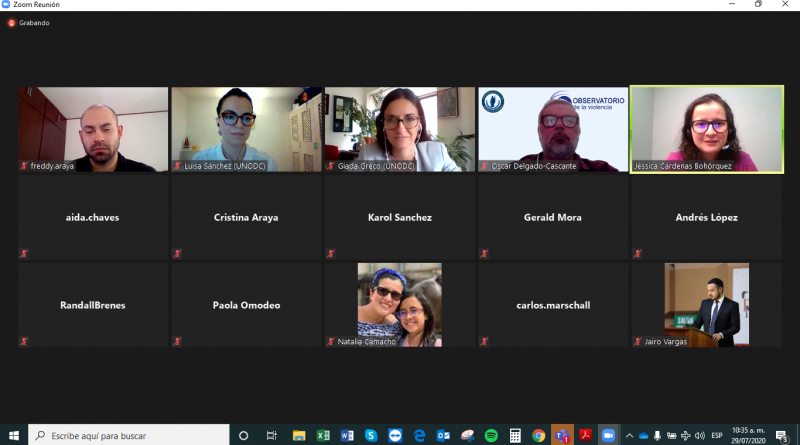Costa Rica adopts the LACSI initiative in its Victimization Module
On July 29th, the Centre of Excellence in Statistical Information on Government, Crime, Victimization and Justice (CoE) participated in a workshop to validate the redesign of Costa Rica’s Victimization Module in order to be included in the 2022 round of the National Household Survey (ENAHO). This Module will be validated through a pilot test so that it can be officially included in the ENAHO 2022, replacing a Module in force since 1989.
This technical meeting was organized by Costa Rica’s Inter-institutional Technical Commission on Security and Citizen Cohexistence Statistics (COMESCO). Several stakeholders of this statistical project participated: the Ministry of Justice and Peace, the Institute of Statistics and Censuses (INEC), the Ministry of National Planning and Economic Policy (MIDEPLAN), UN Women and the United Nations Development Programme (UNDP).
During the meeting, stakeholders presented their methodological comments on the proposed Module that has been developed this year thanks to the CoE’s technical assistance. Due to the contingency conditions by COVID-19, the CoE has adapted its country assistance strategy by making full use of virtual tools. Costa Rica’s Victimization Module was redesigned to be based on the Latin America and the Caribbean Crime Victimization Survey Initiative (LACSI Initiative) which offers a common methodology aligned with UN international standards such as the International Classification of Crime for Statistical Purposes (ICCS, 2015) and the Manual on Victimization Surveys (2010). LACSI Initiative is led by the Centre of Excellence and has an important level of implementation in the region: Costa Rica is the eighth country (after Argentina, El Salvador, Jamaica, Panama, Paraguay, Peru and Saint Lucia) to adopt it.
The decision to improve an already existing tool, by adapting it to international standards, is a clear commitment at the country level to comply with the 2030 Agenda for Sustainable Development. Indeed, with the new Module, Costa Rica will be able to generate quality and comparable statistical information to monitor the progress of 5 indicators of 2030 Agenda (11.7.2, 16.1.3, 16.1.4, 16.3.1, 16.5.1) contributing to the achievement of Sustainable Development Goals (SDG) 11: Sustainable Cities and Communities and 16: Peace, Justice and Strong Institutions.



